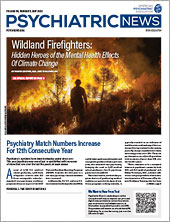Despite racism and discrimination based on ethnicity being illegal for more than 50 years in this country, elements still permeate much of society. The effects of deep-set racism are extensive. Racial trauma can be described as the collection of experiences associated with racial discrimination. They can be microaggressions or overt discrimination. Individuals may experience shame, guilt, or other unpleasant emotions. Three types of deep-set racism exist:
•
Systemic racism: Policies and practices that exist throughout a society or organization resulting in and supporting a continued unfair advantage to some people and unfair or harmful treatment of others based on race.
•
Institutional racism: Policies, rules, and practices that are a usual part of a way an organization works and that result in and support a continued unfair advantage to some people and unfair or harmful treatment of others based on race.
•
Structural racism: Laws, rules, or official policies in a society that result in and support a continued unfair advantage to some people and unfair or harmful treatment of others based on race.
Psychiatry and mental health services are tasked with helping heal some of the aftermath of these policies and practices. However, psychiatry itself has a sordid past of racist thought. Reverberations from this past can still be experienced today. Recognition of this is the first step toward recovery.
In 1886 in the
New York Medical Journal, J.M. Buchanan
wrote that freedom for Blacks increased pathology and that slavery had a protective effect against mental illness. A 1920 article written by American psychiatrist W.M. Bevis was printed in 1921 in
The American Journal of Psychiatry. Titled “
Psychological Traits of the Southern Negro With Observations as to Some of His Psychoses,” this article considered Black Americans to be mentally inferior to White Americans. It was believed that a major reason for mental illness in Black Americans was the pursuit of vice. Further, it was accepted that Black Americans suffered a deprivation of self-esteem due to lower status in society, as well as a lack of possessions. It was, therefore, impossible for them to experience loss.
These are some of the roots of the discriminating bias that still appear in psychiatry today, though modern psychiatry tends to be on the forefront of diversity and inclusion. Numerous studies show that Black Americans are underdiagnosed with depressive and affective disorders. Further, Black Americans are also more frequently diagnosed with paranoid schizophrenia.
Change begins with recognition of the problem. While contemporary psychiatry has evidenced some improvement in terms of eliminating racism, some of the fallout from the past still exists. What can the discipline of psychiatry do to limit the influence of racism? The first step is the recognition of its existence. Beyond this, The American Journal of Psychiatry presented suggestions to White psychiatrists five decades ago. Some of these suggestions included removing the economic obstacles that prevent minoritized individuals from receiving care, discarding stereotypes of Black patients, and sharing administrative decisions with Black colleagues and communities.
Psychiatrists can engage in self-education and self-reflection. They can seek knowledge and information from what has become a bountiful collection of research from other disciplines that have sought to inform the wider community about racism and its effects. They can then use this knowledge to improve their own best practices. There are steps that academic medicine can take as well. One is to ensure that every institution has a diversity, equity, and inclusion (DEI) program. Another is to integrate this DEI program into all areas of the school and ensure it is active at all levels, from entry level through leadership.
Racism and discrimination are, unfortunately, embedded into the fabric of our society. Psychiatry is not immune. There is a long history of racism that still affects psychiatry today. However, by acknowledging the problem as well as working diligently on individual and systematic solutions, this, too, can be overcome. Recognizing the problem, recovering from the mistakes of the past, and facing the challenge with resilience is the path to a brighter future. ■
Dr. Bailey thanks Chiquita Collins, Ph.D., M.A., vice president for equity, diversion, and inclusion at the UT San Antonio Medical School, and Justin Gibson, M.A., research associate at Louisiana State University Health Sciences, for their help in the development of this article and the speech on which it was based. The speech was presented at UT San Antonio in February to mark Black History Month.


